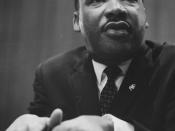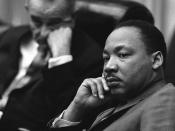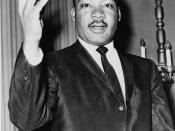Race has been a word that is associated with many thoughts, words, and emotions for thousands of years. Throughout history, people have judged and mistreated just because they were born in the wrong race. Being under discrimination, there were many writers who struggled for the racial movement and gained many valuable results such as Martin Luther King Jr. (Letter from Birmingham Jail), James Balwin (Stranger in the village) and so forth. Brent Staples was one of them with Growing up in Black and White which won the Anisfield-Wolff Book Award in 1995. Beside that, "Black Men and Public Space" was also his interesting work with numerous rhetorical uses adding more effects in describing his experience on more than one occasion in his life: being perceived as a criminal simply based on his "unwieldy inheritance", the color of his skin.
At the beginning, as he puts it, "My first 'victim' was a woman."
The word "victim" makes us surprise as well as curiosity because we know that the essay we are reading is of an educated person - or at least not a criminal. This surprise is a good effect that inspires the audience to continue reading with the purpose in decoding the message he sent to us. Although the author calls this woman his victim, he himself is the victim in the situation. He is the victim of her prejudice; the victim of discrimination just because of his "unwieldy inheritance." The distance between him and the women is "discreet," "uninflammatory." He has done nothing that deserves such mistreatment, but his race does for the reason that it's black. According to him, this is "the ability to alter public space in ugly ways." This "ability" is the main reason to make the author "surprise," "embarrassed" and even...


